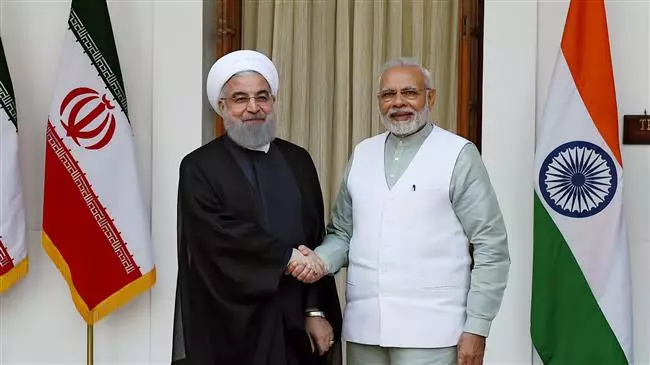Iran-India relations: A history of peaceful collaboration


Iran has awarded a much-awaited agreement to India over the management of part of its strategic Chabahar port – a move that could enable India to dodge Pakistan and reach markets in Afghanistan, Central Asia and beyond.
The agreement which was signed during a visit to New Delhi by Iran’s President Hassan Rouhani would lease the operational control of Shahid Beheshti port – phase one of Chabahar port – to India for 18 months.
Indian Prime Minister Narendra Modi who oversaw the signing of the agreement together with Rouhani later told reporters in a joint press conference that the expansion of connectivity was important for New Delhi.
Modi also emphasized that his country was interested in the construction of a rail link between Chabahar and Iran’s southeastern city of Zahedan – a crucial link that India would need to expand its reach northward.
“We will support the construction of the Chabahar-Zahedan rail link so that Chabahar gateway’s potential could be fully utilized,” he said.
“We want to expand connectivity, cooperation in the energy sector and the centuries-old bilateral relationship.”
Rouhani for his part emphasized that Chabahar could reinforce Iran and India’s historical ties by serving as a bridge connecting the subcontinent to Afghanistan, Central Asia, and Eastern Europe.
“We are ready to sign bilateral and trilateral agreements to turn the transit route passing through Chabahar into a strategic pathway serving the reinforcement of regional ties,” he said.

On a related front, Iran’s Minister of Road and Urban Development Abbas Akhoundi said Iran and India would jointly operate Shahid Beheshti port, adding that New Delhi would invest as much as $87 million in the project.
Akhoundi emphasized that this would be part of a total investment of $2 billion that India would make in Iran’s port and rail projects.
Iran and India also signed several other agreements during Rouhani’s meeting with Modi. They included a double taxation avoidance agreement, an extradition pact, a basic agreement to cooperate over traditional systems of medicine and a deal to cooperate in the field of agriculture and associated sectors.







